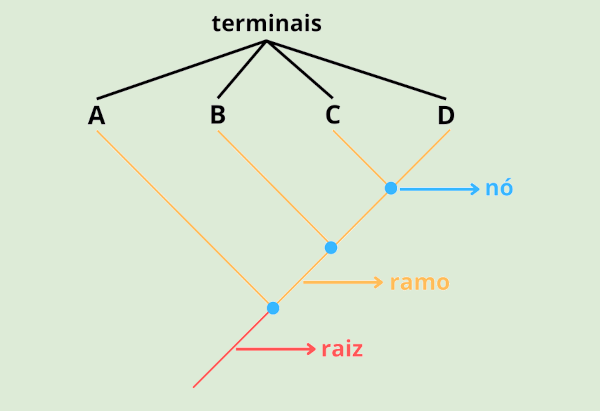ageism is prejudice against people because of their age. This prejudice affects young people, but it is much more common against elderly people, manifesting itself in a variety of ways, such as the way we disregard a person's opinion just because it is elderly.
In addition to ageism, this practice can be called ageism or ageism, the latter term being derived from ageism, a word created in English to mention this prejudice. Ageism manifests itself in different environments, but mainly in the family, professional and health environment. It can cause serious psychological sequelae in victims.
Read too: Racism — what it is, causes, types, cases in Brazil and in the world
Topics of this article
- 1 - Summary on ageism
- 2 - What is ageism?
- 3 - How does ageism manifest itself?
- 4 - What can ageism cause?
- 5 - How does ageism affect the elderly?
- 6 - Ageism against the elderly in Brazil and in the world
- 7 - Ageism and old phobia are the same thing?
- 8 - Is ageism a crime?
- 9 - Examples of situations that can be classified as ageism
Summary on ageism
Ageism is the prejudice manifested against people because of their age.
This prejudice can manifest itself against young people, but it is mainly manifested against the elderly.
Ageism is reproduced mainly in the family context, but it is also very present in the professional context.
According to the WHO, one in six elderly people has already suffered some type of violence, ageism being one of them.
According to the Statute of the Elderly Person, ageism can be considered a crime in Brazil.
What is ageism?
Ageism, also known in Portuguese as ageism or ageism, is the name given to the discriminatory practices carried out against a person based on their age. This discrimination is the result of stereotypes that are built against a group of people of different ages than ours.
It is a prejudice that can affect people of different ages, but it is much more common about old people. Thus, ageism is a problem that intensifies in people's lives as they age.
Do not stop now... There's more after the publicity ;)
How does ageism manifest itself?
Ageism can manifest itself through psychological, verbal or physical violence. However, ageism is considered a silent prejudice, because it is widespread in our society and manifests itself in ways that can be quite subtle.
It can be found, for example, in family relationships, in the labor market and in various others membership sites.
What can ageism cause?
The damage that ageism can cause is enormous, especially the psychological damage. This prejudice affects young people in the sense of people, because they are very young, like teenagers, having their opinions invalidated or being mistreated in some way.
In the professional sphere, ageism against young people manifests itself in the sense that a young person is disqualified from a management position, for example, solely because he is young. But young people are not the only ones who suffer from ageism, as we will see.
See too: What is femicide?
How does ageism affect the elderly?
Although ageism is also practiced against young people, the group that suffers most from this prejudice are the elderly. As a person ages, strong social pressure sets in trying to control the way these people behave. There is also a big disbelief over the actions of an elderly person, as if she were incapable of making her own choices.
It is quite common for the wishes of the elderly to be disregarded, as they are perceived as incompetent to make their own choices because of their age. This happens in the family, medical and many other spheres.

One of the most critical points of ageism is related to the labor market. This is because as a person ages, opportunities in the labor market become scarce. Being rehired after the age of 50 is a big challenge for many people. This is something very complex, especially if we think that in Brazil, for example, social security establishes that the minimum retirement age is 65 years for men and 60 for women. women.
How to reconcile the demand of a market that demands that the population work up to 65 or 60 years old, but, on the other hand, gives few opportunities to older people? In practice, what happens in many cases is more people old being excluded from higher-paying jobs or remain outside the labor market.
Ageism can also make older people's opinions invalid in a work or educational environment. Countless people demonstrate to be ageists when meeting elderly people in environments such as the university. This bias makes veryOs give up goals of studies and professionals when they do not feel capable because they are older.
Ageism against the elderly in Brazil and in the world
Ageism is a problem in Brazil, but not only here. The World Health Organization pointed out, through a survey, that one in each six elderly people on the planet have already suffered some kind of violence at some point in your life. One of forms of violence considered in this research is ageism.
In addition, other data indicate that ageism is a prejudice that is quite reproduced within families, as about 50% of cases of ageism are carried out by their own children. Neighbors and grandchildren are groups that reproduce ageism a lot, in addition to this problem being recurrent in medical care. It is estimated that ageism has increased considerably during the covid-19 pandemic.
The WHO survey also revealed that by 2050, the elderly population will be around 2 billion people, and it is necessary to act to prevent ageism from continuing to be so widespread. In the case of Brazil, it is estimated that the country will have one of the oldest populations of the world in the coming decades. Remembering that ageism can manifest itself through psychological, verbal and even physical violence.
Are ageism and old phobia the same thing?
The word ageism comes from ageism, an English word that describes prejudice against people because of their age. In fact, “ageism” is a Portuguese expression of the English expression. This word in the English language was created in 1969 by Robert Butler, a physician who studied prejudice against the elderly.
Also exists the old phobia, what is a variation ofO ageism. Many understand that Velhophobia can be both prejudice against people because of their advanced age and also fear and rejection of aging itself.
Know more: Population aging in Brazil and in the world — causes and consequences
Is ageism a crime?
Yes, ageism can be considered a crime under Brazilian law. In the case of the elderly, the Statute of the Elderly Person establishes means to protect them against possible abuse. The statute, also known as Law No. 10,741, was a law sanctioned on October 6, 2003, during the government of Luiz Inácio Lula da Silva.
This law seeks to establish the rights of the elderly in Brazil, creating a mechanism to guarantee the dignity of the elderly and respect for their rights. Within this law there are some important articles that define that ageism and discrimination against elderly people because of their age is a crime:
Art. 4th No elderly person shall be subject to any type of negligence, discrimination, violence, cruelty or oppression, and any violation of their rights, by action or omission, will be punished in the form of law.
Art. 27. When admitting an elderly person to any job or employment, discrimination and the setting of maximum age limit, including for competitions, except in cases where the nature of the position makes it demand.
Art. 96. Discriminating against elderly people, preventing or hindering their access to banking operations, means of transport, access to right to contract or by any other means or instrument necessary for the exercise of citizenship, due to age:
Penalty – imprisonment from 6 (six) months to 1 (one) year and fine.
§ 1 The same penalty applies to anyone who disdains, humiliates, belittles or discriminates against an elderly person, for any reason.
§ 2 The penalty will be increased by 1/3 (one third) if the victim is under the care or responsibility of the agent.
By the fragments of the law that were separated, we can see that no elderly person can suffer discrimination. Discriminating against an elderly person is a crime punishable by six months to one year in prison. In the job market, age cannot be a criterion that kills or harms a person.
The same goes for children and adolescents.. Ageism in these cases can also be considered a crime according to with the Child and Adolescent Statute, as this law prohibits any discrimination against these people.
Examples of situations that can be classified as ageism
As mentioned, ageism is a generally silent prejudice that occurs without many people realizing it, and is manifested mainly by close people. We also saw that it is not limited to the family context. Let’s look at some situations that can be classified as ageism:
calling a person “old” or “old” in a pejorative way;
disregarding a person's opinion solely because he is old or very young;
considering that a person is incapable of doing something because of his age;
claiming that every teenager is annoying just because of their age;
dismissing a person for considering them “too old” to exercise a trade;
consider that a person is unable to take on a job because he is too young;
deliberately not giving opportunities for older people to be hired in a company;
lack of public policies to benefit people of a certain age;
consider elderly people incapable of making their choices solely because they are elderly;
make a medical analysis based solely on a person's age, ignoring the patient's report;
judging an elderly person for not being tech savvy.
By Daniel Neves Silva
History teacher
Find out why Dia do Idoso is celebrated in Brazil on October 1st and also how this date relates to international resolutions on aging.
Click here and learn more about the consequences of aging for the locomotor system!
Click here and learn more about Human Rights. Understand how they came about and what their importance is. Check out the 30 articles of the Universal Declaration of Human Rights.
Understand population aging. Find out about the impacts of this process on the future of a country and which countries are most involved in this demographic phenomenon.
Click here to understand what feminicide is and its types, as well as to find out the content of Law nº 13.104/15, which deals with this type of crime.
Social class prejudice is more expressive in Brazil than racial prejudice.
Click to understand what racism is, what Brazilian laws do to prevent crimes of racial prejudice from happening and a little bit of the history of the fight against this practice.



